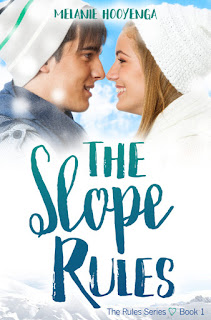Most of us may be aware of one or more of the following children’s book reviewing sources: Horn Book, Kirkus, School Library Journal, Booklist… Many of my author and illustrator friends slip into depression or rage or denial upon the release of a review. Note that I did not add an adjective to “review.” Book creators have a myriad of reasons for releasing a maelstrom of anxiety-ridden emotion to suck them into wishing they had become shepherds instead of exposing their work to a cadre of leering reviewers. And sometimes these reasons are as capricious as the wind. “They didn’t like this enough.” “They liked the wrong thing.” The actual reasons are not as important as the point that book creators should be more concerned about the next book than this book, with all its perfections and mistakes. And most of my book creating friends do not spend a second thinking about matters of representation justice.
Reviewers typically come from the American Library Association world. Usually they are librarians, but if, like me, they are not, they come with a whole host of reviewing experience. This experience can be from serving on Notable Children’s Books or other committees that select a list of books, such as the old, Best Books for Young Adults (that is now the Best Fiction for Young Adults). Many reviewers have served on single book selection committees, such as the Caldecott or Newbery. And most reviewers are white and most are women, to say nothing of other intersections.
My own experience includes establishing the young adult book review column (that may not still exist) for the Michigan Reading Journal. I have also reviewed for local newspapers, Horn Book, and others. I have served on the Printz Award, the Caldecott Award, the Schneider Family Book Awards (one year as the Chair), and many others. I even served as a poetry reviewer for the Lee Bennett Hopkins Children’s Poetry Awards.
At this point readers may be thinking that reviewers are a well-vetted group of very knowledgeable readers—and we are. However, we are also victims of a systemic and dangerous singular view of what constitutes excellent literature for children, which helps explain why book creators should be more concerned with creating their next book. We are victims of our upbringing with all of its implied support of a patriarchal, misogynistic, racist, homophobic, ableist… viewpoint. Quick! Name five series for middle school students that feature Black women. Name five books that portray a student with a wheelchair on the cover. Name ten books for each of the five hundred plus separate nations that exist within our U.S. borders.
Do ALL of our children have a chance to see themselves regularly among the artwork and words on our covers and pages? If not, how should reviewers deal with this fact? I remember reading about Toni Morrison’s conversation with a tall, white, male reporter. At one point she says to him that if the only reason he knows how to be tall is because he makes everyone kneel down to him, then he has a gigantic problem. She then tells him something close to, “Racism is a gigantic problem in this country. What are YOU going to do about it? Leave me out of it.”
Until we are able to see that our world is shaped by children’s literature—the world we see AND the world we don’t see—fear will reign. Would a young George Zimmerman living in a world steeped with images of young Black teens wearing hoodies have grown up with the same prejudices? Would he have seen the person in the hoodie? I firmly believe that it is the job of the reviewer to seek out books featuring the unrepresented and to shine a “BUY THIS BOOK NOW” light on those that feature children from Indigenous Nations, LGBTQ students, POC children, etc. The good news is that one can promote plenty of high quality books that address this!
It is also the job of the reviewer to listen to these same people and be willing to learn, be willing to apologize for screwing up, be willing to persist when so many would ask us to give up. Toni Morrison also said that optimism is a political weapon that should be used every single day. Rarely has she been wiser!
Coming up on the Mitten Blog:
Diversity Members for Members Scholarship Fund, publishing with a small press, Nonfiction Mentorship Competition and Conference, Book Birthdays, a Writer's Spotlight, and much more!Do you have an idea for a blog post? We are actively seeking posts from our SCBWI-MI members. Do you have writing or illustrating tips to share? Marketing or school author visit tips to share? Do you have a book on craft to recommend or have you taken a helpful class or webinar? Do you have a success story to share? Would you like to interview your favorite indie bookstore staff or your local school or public librarian? Please query editor Kristin Lenz HERE.
Do you have an upcoming book release? We want to celebrate with you! Please contact Lauren Nyquist HERE to be featured on our Book Birthday Blog.









